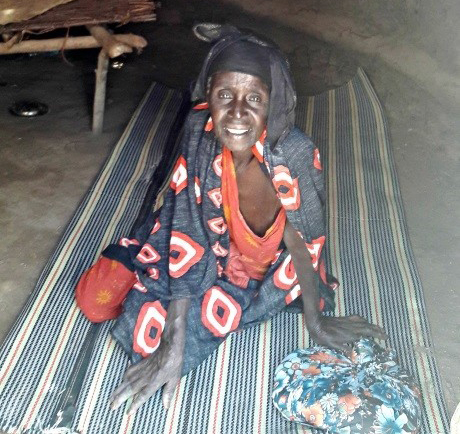Battling effects of the drought: a victim of water-borne diseases speaks
The ongoing drought in Somalia presents mounting challenges on the humanitarian front, as communities struggle with its devastating effects. As the drought worsens and the dry season reaches its peak, water-borne diseases are becoming more and more prevalent due to lack of safe drinking water, poor hygiene and a lack of sanitation.
The number of people affected by waterborne diseases such as acute watery diarrhea and cholera has spiked since late 2016 and continues to rise. Over the past few months, access to safe drinking water has become a huge challenge for families as they try to survive the drought.
In Busle village, North of Baidoa, Mama Habiba, a 65 year old woman, tells how she has been sick for three weeks with acute watery diarrhea. Without any kind of medication, her only option was homemade remedy, with a mix of salt and sugar, which was not giving her any relief. After three days of nonstop diarrhea, her son managed to find a nurse in Baidoa town who treated her and gave her medication to relieve her symptoms. Habiba, sitting on her tattered mat at the floor of a thatched house whose grass roofing was removed to feed animals, narrates her story.
I got treated and the diarrhea has now stopped, but I am not able to stand up and walk because I lack energy.
Mama Habiba lacks basic items such as beddings, blankets and pillows. Her bed is made of lined-sticks wrapped together with ropes and old animal skin. “These sticks [referring to her bed] have left marks on my ribs and give me so much pain as I lie down,” she said. Before this devastating drought, her son and grandchildren would take good care of her and provide abundant food harvested from their farmland. Now, everyone is busy trying to survive. In March 2017, Habiba was selected as a participant for ACTED’s unconditional cash transfer programme. She cannot hide her own happiness as she calls for urgent and faster support to counter the effects of the ravaging drought.

ACTED’s intervention came when I needed it most. The cash I received helped me access further treatment, buy food, water and clothes,
After receiving several months of cash transfer, she used some cash to plough her farm which is her source of food now.
“Look at me now, I am stronger, healthier. I have so far harvested 10 bags of maize and sorghum to help sustain my growing family,” she said with a smile on her face. “This could not be possible if ACTED’s cash intervention had not came to us. I really appreciated the assistance received from ACTED and USAID-FFP,” she concluded. She is planning to save some more money to buy goats and donkeys as a way of securing her family’s future.
Read also: Urgent need for action in reponse to possible famine in Somalia
